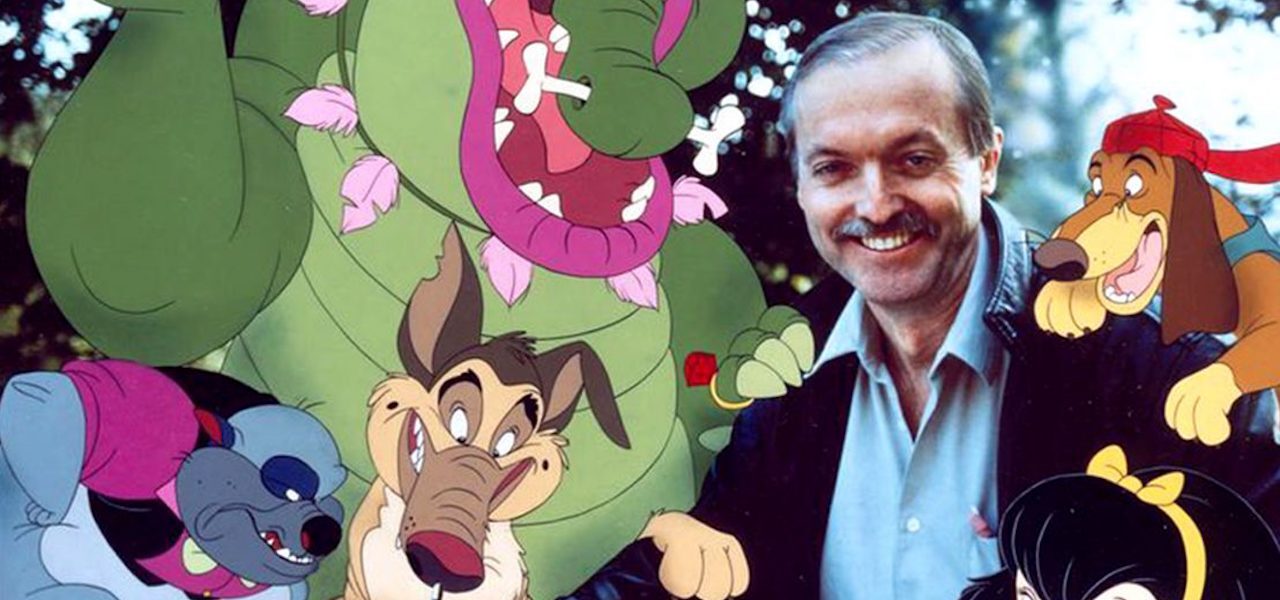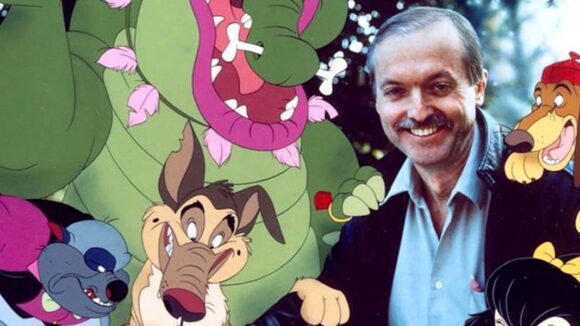

Don Bluth’s Invasion Of Ireland: A New Podcast Reveals The Untold Story
The defection of Don Bluth and like-minded colleagues from Disney in 1979 is a well-worn story in Hollywood animation. Less has been said about a chapter in Bluth’s career that followed soon after: his years in Ireland, where he made films like The Land Before Time, All Dogs Go to Heaven, and Thumbelina.
This story is told in a new episode of the podcast Meet Your Maker, which is currently chronicling the history of Irish animation in a mini-series. Host Liam Geraghty has good access, securing interviews with Bluth and fellow Disney defectors Gary Goldman and John Pomeroy. Crucially, he also speaks to a range of Irish animators and executives who joined Dublin’s new Sullivan Bluth Studios in the 1980s, thrilled by Hollywood’s sudden presence in their community. Listen to the podcast here.
The podcast paints the backdrop to Bluth’s move, noting that the Irish government attracted his studio with the biggest grant it had ever offered a non-manufacturing company. We also learn that this public money was not matched by other investors, leading to a lack of equity that seeded the studio’s downfall.
The American interviewees reminisce about the mass exodus of artists and technicians — 87 in all — from California to Dublin, where they discovered, to their dismay, that it rained a lot. There, they set about training local artists in classical animation, adapting the animation course of Canada’s Sheridan College for the nearby Ballyfermot College. The locals were delighted at the new career opportunities — like a “Willy Wonka ticket straight into animation,” as one puts it.
The Irish interviewees reflect on the workplace culture there, the meticulousness of their American teachers, and the “swaggering” behavior of Bluth himself. They also discuss the reverse exodus that happened after the studio collapsed and Bluth and Goldman set up Fox Animation Studios in Phoenix, Arizona, prompting many colleagues from Dublin to move with them. Now the Irish found themselves in a land of perpetual sun and air-conditioning. According to one artist, they spent a lot of time getting drunk and longing for rain.
The perspectives of below-the-line staff make this podcast a valuable resource. The episode also provides nuggets of insight into Sullivan Bluth’s importance to Ireland and vice versa. Pomeroy argues that the exodus to Ireland informed the themes of immigration and tolerance in Bluth’s films. Meanwhile, Gerry Shirren says that the studio laid the foundations for the booming animation industry in Ireland today. He’s an embodiment of that fact: having started out as a production manager at Sullivan Bluth, he is now managing director at Cartoon Saloon.
Previous episodes in the Ireland mini-series cover subjects including Walt Disney’s connections to the country and the career of pioneering animator Aidan Hickey. The podcast, which explores the theme of creativity in general, has previously interviewed artists like cartoonist Chris Ware and Muppet performer Louise Gold.

.png)